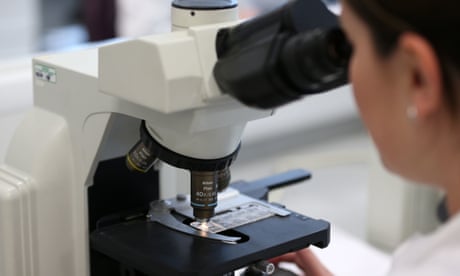Health-threatening fungi are spreading in geographic range due to climate change, while some fungal diseases spiked during the Covid-19 pandemic, according to authors of a newly released World Health Organization report. On Tuesday the WHO published its first ever list of fungal priority pathogens, cataloguing 19 organisms that experts identified as being of the greatest threat to public health. “Currently, fungal infections receive less than 1.
5% of all infectious disease research funding,” the report found, suggesting the true health burden of fungi is unknown, while “most treatment guidelines are informed by limited evidence and expert opinion”. Immune system-evading hybrid virus observed for first time Read more The WHO’s assistant director general of antimicrobial resistance, Dr Hanan Balkhy, said in a statement: “Emerging from the shadows of the bacterial antimicrobial resistance pandemic, invasive fungal diseases are growing ever more resistant to treatments, becoming an ever more pressing public health concern worldwide. ” Dr Justin Beardsley, of the University of Sydney Infectious Diseases Institute, who led a group commissioned by the WHO, said historical research underspending was out of step with the “huge burden of disease” of fungal infections.
“They’re causing as many deaths as tuberculosis, and more than malaria,” he said. The report, which involved more than 400 mycology experts and a review of more than 6,000 research papers, ranked fungal pathogens based on public health impact and risk of resistance to antifungal drugs. Sign up for our free morning newsletter and afternoon email to get your daily news roundup Of the 19 fungi included, four were identified as being of “critical” priority.
These included Aspergillus fumigatus and Candida albicans – the two most common fungal pathogens globally – as well as Cryptococcus neoformans , which is a leading cause of death in people with HIV. Aspergillus fumigatus mainly affects the lungs, while Candida albicans is the most common cause of thrush – and invasive infections in vulnerable patients have high mortality rates. Infection rates of both pathogens rose in many countries during the Covid-19 pandemic.
“We suddenly had a bunch of patients who were getting really sick, coming in with lung damage, being in intensive care and having immune-suppressing medications, and so we saw a spike in the rates of these infections,” Beardsley said. “ Aspergillus fumigatus has got its own disease state called Covid-associated pulmonary aspergillosis. ” The fourth critical priority pathogen, Candida auris, grows as a yeast and was first discovered in humans in 2009.
“It just didn’t exist before then,” Beardsley said. “It literally appeared all over the world at the same time, and we’re still trying to work out why and how. ” The pathogen is “intrinsically resistant to most available antifungal medicines” and has “high outbreak potential”, the report found.
‘No new HIV cases by 2030’: England hopes to become first country in the world to defeat virus Read more Researchers have also noted the geographic spread of fungal pathogens that were previously limited to certain regions. Cryptococcus gatii , for example, has spread from the subtropics into temperate regions. Talaromyces marneffei was thought to be limited to south-east Asia, but has been found farther north in China.
“That can partly be because it’s being looked for, but I think it’s more that it is genuinely expanding its range – and that probably is linked to climate change,” Beardsley said. Tackling invasive fungal diseases will require increased funding for new antifungals and improved diagnostics, the report found. There are only four classes of antifungals currently available, and developing new drugs was difficult because of the similarities between fungal and mammalian cells, Beardsley said.
“Something that will kill a fungus will often kill a human cell too,” he said. .
From: theguardian
URL: https://www.theguardian.com/science/2022/oct/25/fungal-disease-spiked-during-covid-pandemic-and-pathogens-spreading-due-to-climate-crisis-who-says



